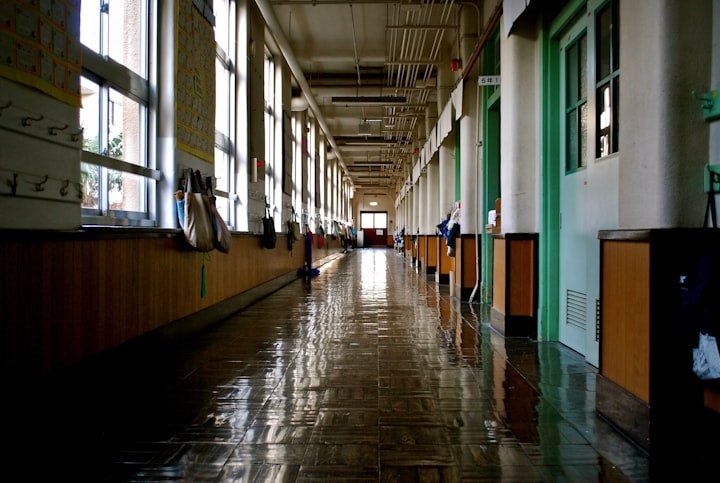Pandemic is a Warning of Threats to Climate Change and Environmental Degradation.
The EU pledges to ensure that its response to COVID-19 upholds the dignity and human rights of all without discrimination of any kind.

The Council has approved conclusions that reaffirm the EU's commitment to human rights in the context of recovering from the COVID-19 pandemic.
The EU recognizes that the ongoing COVID-19 pandemic and its socio-economic consequences are increasingly having a negative impact on human rights, democracy and the rule of law, including the civil sphere.
The pandemic has deepened pre-existing inequalities and increased pressure on people in vulnerable situations.
In this regard, the EU reiterates that a socio-economic response with human rights will essentially enable a better and more sustainable recovery.
The EU pledges to ensure that its response to COVID-19 upholds the dignity and human rights of all without discrimination of any kind. Nothing should be abandoned and no human rights should be neglected.
Therefore, human rights, democracy and the rule of law will remain at the core of the EU's response to the COVID-19 pandemic, as stated in the Council's conclusions on the EU Action Plan for Human Rights and Democracy 2020-2024.
EU actions should also be guided by the Paris Agreement on climate change and the 2030 Agenda for Sustainable Development, as the COVID-19 pandemic is also a warning of the greater threat of climate change and environmental degradation.
Lastly, the Council recognizes the important contribution made by all members of the European Team, as part of the EU's global response to COVID-19, and their contribution to demonstrating global leadership, responsibility and EU solidarity.
European Council conclusions are adopted during each European Council meeting. They are used to identify specific issues of concern for the EU and outline particular actions to take or goals to reach. European Council conclusions can also set a deadline for reaching agreement on a particular item or for the presentation of legislative proposal. In this way, the European Council is able to influence and guide the EU's policy agenda.
Ahead of the European Council meeting, the President of the European Council drafts guidelines for the conclusions. These are then discussed at the General Affairs Council and later adopted at the European Council meeting. Conclusions are adopted by consensus between all EU member states.
European Council conclusions from 2004 onwards are available in the public register of official documents.
Members of the European Council
The members of the European Council are the heads of state or government of the 27 EU member states, the European Council President and the President of the European Commission.
The High Representative of the Union for Foreign Affairs and Security Policy also takes part in European Council meetings when foreign affairs issues are discussed.
Decision-making process
The European Council mostly takes its decisions by consensus. However, in certain specific cases outlined in the EU treaties, it decides by unanimity or by qualified majority.
If a vote is taken, neither the European Council President nor the Commission President take part.
European Council meetings
The European Council meets at least twice every 6 months. Its meetings, often referred to as 'EU summits' are held in Brussels, in the Europa building.
Meetings are chaired by the European Council President. The President can also convene extraordinary European Council meetings when needed.
The President of the European Parliament attends the start of each meeting, to outline the European Parliament's views. Other people, such as the President of the European Central Bank, may be invited to attend meetings, depending on the issues being discussed.
IOM, UNHCR: Latest Mediterranean tragedy underscores need for search and rescue.
The International Organization for Migration (IOM) and UNHCR, the UN Refugee Agency, are deeply saddened by the latest loss of life in the Central Mediterranean, after two boats capsized off Tunisia’s shores on Tuesday, 9 March.
At least 39 people drowned in a shipwreck off Kerkennah island. One hundred thirty-four survivors, most of them from Côte d’Ivoire, were brought to shore by Tunisia’s coast guard. The rescue operations are still ongoing, hampered yesterday by harsh weather conditions. A second shipwreck took place off the coast of Jebeniana city in Sfax governorate. The boat had 70 persons on board, including four children, who were all taken to shore.
These are the latest in a string of shipwrecks off Tunisia’s coast. IOM and UNHCR work with partners in the country to give emergency assistance and health support to survivors. In 2021, the Tunisian authorities have carried out 21 sea rescue operations – sometimes of boats departing from Libya’s coast.
“The approach adopted by Tunisia shows that it’s not only necessary but possible to guarantee the safety of those rescued, while providing for the health and security of the host communities,” said UNHCR’s Representative in Tunisia, Hanan Hamdan.
“We commend the search and rescue efforts of the Tunisian authorities and will continue to support them in providing urgent humanitarian assistance to those rescued at sea,” added IOM’s Chief of Mission in Tunisia, Azzouz Samri.
Some 190 people have died while crossing the Central Mediterranean in 2021, while some 5,700 others arrived in Italy from North Africa. This is an average of almost three deaths per day.
“The Central Mediterranean continues to claim lives as thousands of people embark on these perilous journeys, whether fleeing extreme poverty, conflict, or in search of a better life,” added Samri. “We continue to call for proactive search and rescue in the most dangerous sea crossing in the world, and the establishment of clear and safe disembarkation for people rescued at sea.”
The agencies stress that prosecuting smuggling groups and traffickers who take advantage of the vulnerabilities of people and put them on risky journeys must be a priority.
-
According To APO group on behalf of United Nations High Commissioner for Refugees (UNHCR) and EU council.
About the Creator
Viona Aminda
Not a fiction story telling






Comments
There are no comments for this story
Be the first to respond and start the conversation.